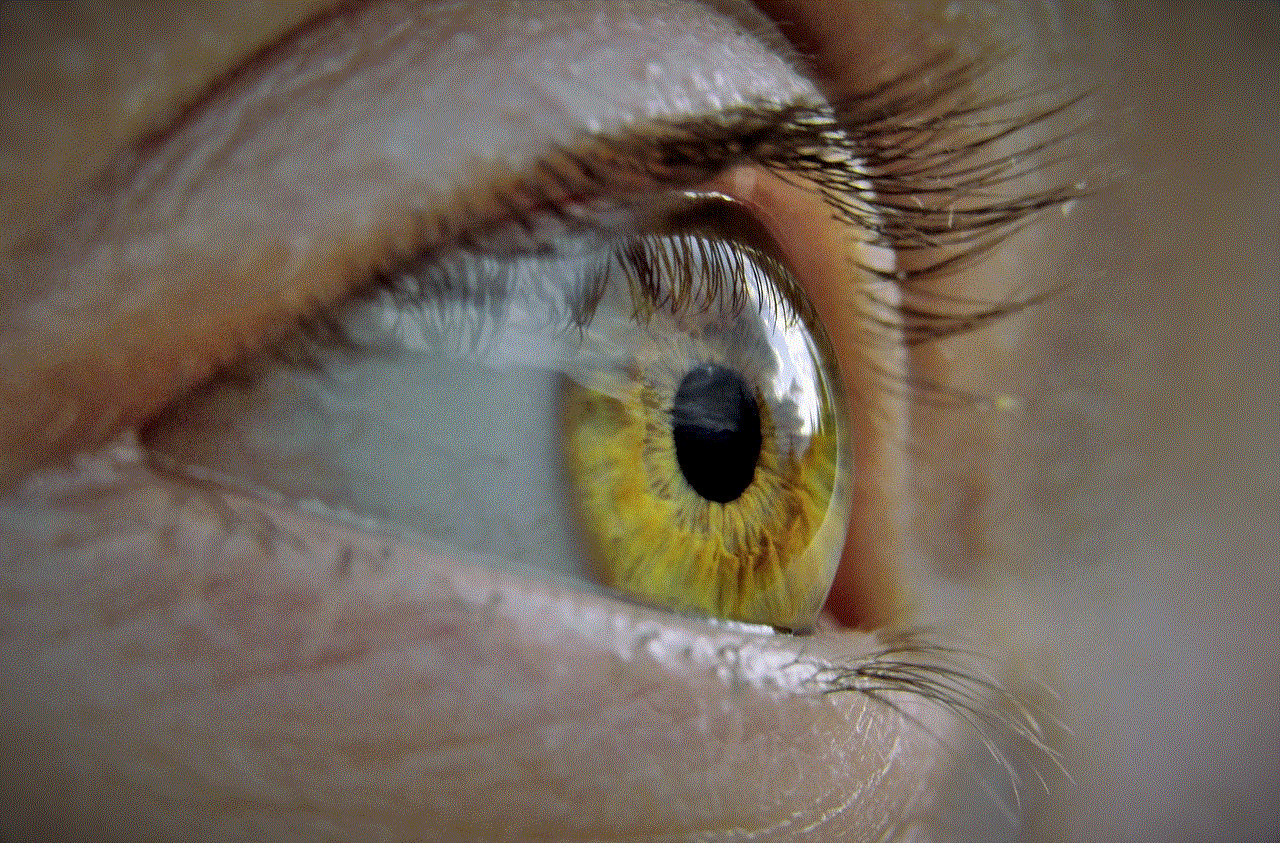my boyfriend hides his phone when texting
In today’s digital age, smartphones have become an integral part of our daily lives. They have revolutionized the way we communicate, making it easier and faster to connect with others. However, with this convenience comes the potential for privacy invasion, especially in romantic relationships. It is not uncommon for one partner to feel the need to hide their phone when texting, and it can raise a lot of questions and concerns. In this article, we will delve into the reasons why someone might hide their phone when texting in a relationship and how to deal with this behavior.
First and foremost, it is essential to understand that everyone values their privacy differently. Some people are more open and transparent with their partners, while others prefer to keep certain things private. If your boyfriend is hiding his phone when texting, it does not necessarily mean that he is doing something wrong. It could simply be a matter of personal preference. It is crucial to approach the situation with an open mind and without jumping to conclusions.
However, if this behavior is new, or if you have noticed other changes in your relationship, it is natural to feel concerned. It is essential to communicate with your partner and express your feelings in a calm and respectful manner. Ask them why they feel the need to hide their phone when texting and listen to their explanation without judgment. It could be that they have a valid reason, such as work-related messages or personal conversations with friends or family. By having an open and honest conversation, you can address any underlying issues and come to a better understanding of each other’s boundaries and expectations.
Another reason why someone might hide their phone when texting is that they have something to hide. It could be as innocent as planning a surprise or gift for their partner, but it could also be something more concerning, such as flirting with someone else. If you have noticed changes in your partner’s behavior, such as being overly protective of their phone or being secretive about their messages, it is essential to address these red flags. Again, communication is key in any relationship, and it is crucial to discuss your concerns and feelings with your partner. If they are not willing to be transparent with you, it could be a sign of larger issues in the relationship that need to be addressed.
Trust is the foundation of any healthy relationship, and if your partner is hiding their phone when texting, it can naturally cause feelings of suspicion and doubt. However, it is essential to remember that trust is a two-way street. If you want your partner to trust you, you must also trust them. If there are no other signs of infidelity or dishonesty in the relationship, try to give your partner the benefit of the doubt. Constantly checking their phone or accusing them of wrongdoing can do more harm than good and create a toxic environment in the relationship.
In some cases, hiding a phone when texting could be a sign of addiction or unhealthy habits. With the rise of social media and messaging apps, it is easy to become consumed by our phones. Some people feel the need to be constantly connected and may become anxious or agitated when they are not. This behavior can also lead to secrecy and hiding their phone when texting to avoid any confrontation. If you notice that your partner is always on their phone, even when you are spending quality time together, it is essential to address this issue and find a healthy balance. Encourage them to disconnect and be present in the moment, and set boundaries for phone use in the relationship.
On the other hand, hiding a phone when texting could also be a sign of lack of communication or emotional intimacy in the relationship. If your partner feels like they cannot be open and honest with you, they may resort to hiding their phone to avoid any uncomfortable conversations or confrontations. It is crucial to create a safe and trusting environment in the relationship, where both partners feel comfortable expressing their thoughts and feelings without fear of judgment or backlash. If you notice that your partner is withdrawing or avoiding conversations, it may be a sign that there are underlying issues in the relationship that need to be addressed.
Lastly, it is essential to remember that everyone has the right to privacy, even in a relationship. While it is natural to want to know everything about your partner, it is also essential to respect their boundaries and give them the space they need. Hiding a phone when texting could simply be a way for your partner to have some personal space and time to themselves. It is essential to find a healthy balance between being open and honest with each other and respecting each other’s privacy.
In conclusion, there could be various reasons why your boyfriend hides his phone when texting. It is crucial to approach the situation with understanding and open communication. Trust and transparency are the foundations of a healthy relationship, and it is essential to address any underlying issues that may be causing this behavior. Remember to respect each other’s boundaries and give each other the space and privacy they need. By working together, you can build a strong and trusting relationship where both partners feel comfortable and secure.
anonymous media app yik exposed users



In today’s digital age, anonymity has become a hot topic, with the rise of social media and anonymous messaging apps. One such app, Yik Yak, gained popularity for its promise of providing a platform for users to share their thoughts and opinions without the fear of judgment or consequences. However, recent events have exposed the dark side of this anonymous app, as it has been revealed that Yik Yak was used to spread hate speech, cyberbullying, and even threats of violence. This has sparked a debate about the dangers and implications of anonymous social media, and the need for stricter regulations to protect users. In this article, we will delve into the controversy surrounding Yik Yak and the impact it has had on its users and society as a whole.
Yik Yak was launched in 2013 by two college students from Furman University, Tyler Droll and Brooks Buffington. The app gained popularity mainly among college students, as it allowed them to post anonymously on a virtual bulletin board, known as the “Yak Board”. Users could share their thoughts, jokes, and opinions without revealing their identity, and posts were only visible to those within a 1.5-mile radius. This gave users a sense of freedom and anonymity, as they could express themselves without fear of judgment or backlash from their peers.
At the time, Yik Yak was seen as a refreshing alternative to mainstream social media platforms, where users were expected to portray a perfect image of themselves. Yik Yak allowed people to be their true selves without any filters, and this appealed to many users, especially those who struggled with social anxiety or felt marginalized in their communities. The app gained a massive following and was valued at $400 million at its peak.
However, as the saying goes, “with great power comes great responsibility”, and Yik Yak’s lack of accountability and regulation led to its downfall. As the app’s popularity grew, so did the number of incidents involving hate speech and cyberbullying. Because posts were anonymous, users felt a sense of invincibility, and this led to a surge of hateful and derogatory comments being posted on the Yak Board. This was especially prevalent on college campuses, where students used the app to bully and harass their peers.
In 2014, an African-American student from the University of Missouri posted a screenshot of a Yik Yak post that read, “I’m just gonna say it… the South will rise again #N****rLynching”. This sparked outrage and protests on campus, as students demanded that the university take action against the app. In response, Yik Yak introduced a feature that allowed users to report inappropriate or offensive posts. However, this did little to curb the hate speech and cyberbullying on the app, as users could simply create new accounts after being banned.
The situation escalated further in 2015 when Yik Yak was used to make threats of violence on college campuses. In one incident, a student from Valparaiso University posted a Yak saying, “I’m going to shoot every black person I can on campus. Starting tomorrow morning”. This led to the university being shut down as a precaution, and the student responsible was later arrested. Similar incidents occurred at other universities, causing widespread panic and fear among students. It became clear that Yik Yak’s promise of anonymity had been taken advantage of, and the app was being used as a tool for hate and violence.



In response to the backlash, Yik Yak introduced a new feature that required users to verify their identity through their phone number. While this was a step in the right direction, it did little to address the root of the problem – the anonymity itself. Users could still create fake accounts using different phone numbers, and the app continued to be a breeding ground for hate speech and bullying.
The situation reached a tipping point in 2016 when Yik Yak was used to make threats against schools in the United States. In one incident, a high school in Rochester, New York, received a Yak that read, “I’m coming to your school tomorrow with a gun, be ready”. This led to the school being shut down, and the FBI was called in to investigate. Although the threat was later found to be a hoax, it highlighted the potential dangers of anonymous messaging apps like Yik Yak.
As the controversy surrounding Yik Yak grew, so did the calls for stricter regulations. Critics argued that the app’s anonymity feature was inherently flawed and allowed users to spread hate and incite violence without any consequences. They also pointed out that the app’s geolocation feature made it easier for perpetrators to target specific individuals or groups. Many demanded that the app be banned altogether, while others called for stricter measures to be put in place to hold users accountable for their actions.
In April 2017, Yik Yak announced that it would be shutting down. In a statement, the co-founders cited the app’s inability to “sustain a platform for anonymous messaging” as the reason for its closure. While this was seen as a victory by many who had been affected by the app’s harmful use, it also sparked a debate about the impact of anonymous social media on free speech and the need for stricter regulations.
On one hand, proponents of anonymity argue that it allows people to speak freely without fear of retaliation or judgment. They believe that anonymity is a fundamental right and provides a safe space for marginalized groups to express themselves. However, critics argue that this freedom comes at a high cost, as it allows hate speech, cyberbullying, and threats of violence to go unchecked. They also point out that anonymity encourages a culture of toxicity and undermines the values of accountability and responsibility.
The controversy surrounding Yik Yak has shed light on the dangers and implications of anonymous social media. While the app promised to provide a platform for users to express themselves freely, it ultimately facilitated the spread of hate and violence. The lack of regulation and accountability on these platforms has made it easier for individuals to hide behind a screen and cause harm to others without facing any consequences. As such, it has become imperative for authorities to take action to protect users and prevent the misuse of anonymity.



In conclusion, Yik Yak’s downfall serves as a cautionary tale of the potential dangers of anonymous social media. While the app’s intentions may have been noble, its lack of accountability and regulation ultimately led to its demise. The controversy surrounding the app has also sparked a debate about the need for stricter measures to protect users and prevent the misuse of anonymity. As we move forward in the digital age, it is crucial to strike a balance between free speech and responsibility, and ensure that platforms like Yik Yak are not used as tools for hate and violence.